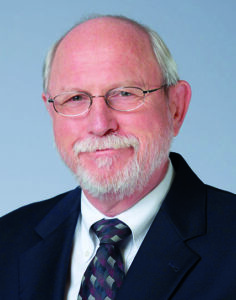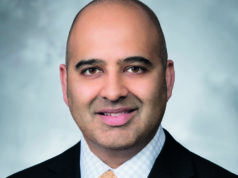
The Society for Vascular Surgery (SVS) has a vision that is unwavering. We desire quality vascular care for all patients by providing our members with the information and tools they need to provide best care. We believe the goal is the right care, by the right provider, at the right time, and in the right place for each patient.
Over the last few months, there has been much debate amongst members regarding quality and appropriateness of care across various healthcare settings. This has been stimulated by recent research conducted, published, and presented by colleagues from Johns Hopkins University, as well as other work published by academic surgeons in the recent past. Before going any further I would like to make two points absolutely clear and unequivocal:
- SVS is 100% supportive, and a champion, for all of its members working hard to provide quality care of patients regardless of site of service. Championing the “right care-right provider-right time-right place” mantra requires the SVS, and all of us, to embrace and continue to improve care for patients wherever it is delivered.
- SVS has always embraced as one of its highest core values, that we follow best science and best evidence to inform and improve our specialty. This means we question, challenge and debate to be sure, but in the interest of strengthening evidence that will help us to take better care of our patients.
It is with these principles in mind that, on Feb. 24, representatives from academic and private practice, along with SVS leadership, had a productive meeting to address the ongoing issues and perceptions that resulted from recent publications and presentations. We openly discussed any misunderstandings and sought to find a constructive path forward.
A primary issue was the discovery of strong correlations within the Medicare database that demonstrated a signal of inappropriate care by extreme outliers. In some cases, these outlier occurrences were found more likely associated with the office-based lab (OBL) setting. Importantly, most outliers were not vascular surgeons. Some members of the vascular surgery community working in the OBL setting interpreted the conclusions and discussions of this correlational data as a general accusation of providing inappropriate care for personal gain.
On our call, it quickly became very clear that everyone wanted the best care possible for our vascular patients. The Medicare database research did point out signals of concern that should worry all of us, that are deserving of more research, and must be addressed through policy, education, and quality improvement. Everyone agreed that the OBL can and does provide an accessible, affordable, patient-friendly setting with vascular surgeons who provide excellent patient care. It was further observed that the other part of the story has been lost in the controversy. The vast majority of vascular surgeons in all practice settings are meeting or exceeding practice guidelines and appropriate use criteria (AUC) recommendations to provide quality care. Other specialty providers seeking to expand their role in vascular interventions and care fall short of this metric much more often. Even so, we need to address any issues within our own community to be “the best we can be for our patients.”
Research from our SVS members provides us with the information we need to consider as potential challenges and opportunities to improve patient care. Some research utilizing “big data” and/or retrospective data highlights “associations” that alert us to potential issues that need to be addressed. These data raise important questions and help inform our discussions around quality care. We discussed that the data and its interpretation are not always well aligned, can be overstated, and how open discussion around this is important.
In addition, what is lacking from the current administrative databases is direct information on the “cause and effect” of clinical questions. During our meeting, there were plans made for our academic vascular surgeon researchers and private practice surgeons to collaborate on pertinent questions that need to be answered—some around the cost of care delivery, with research methodologies that are sufficiently robust to conclusively answer “cause-and-effect” questions.
This most recent debate and dialogue has resulted in improvements in the peer-review process of the Journal of Vascular Surgery. Although the editors have previously strived to diversify the reviewer database, there have been few reviewers who were community practice vascular surgeons and/or who worked in OBLs, until now. The editors are grateful for those who have volunteered to review papers, and to write commentaries explaining the nuances of OBL practice and economics.

From a clinical perspective, we all understand that there is work to be done. There are outliers providing care that deviates from current best or even acceptable practice. The SVS has no direct (legal) knowledge of local vascular care delivery and cannot police these issues for our members. We can provide the tools to do the best job we can for our patients. The SVS leaders, and the members present at this meeting, do stand behind quality vascular care as outlined in our clinical practice guidelines and AUC documents. Clinical vascular care is an art influenced by the science available. Clinical guidelines and AUC documents provide the current best science we have for the art that must be practiced. The SVS provides this information to our members as rapidly as possible.
Perhaps the most important and potentially influential exemplar is the national launch of the new American College of Surgeons (ACS)-SVS Vascular Quality Program (“ACS-VP: A Quality Program with the Society for Vascular Surgery”). If you care about quality and patient safety, I encourage all SVS members to participate in this “vascular center of excellence” program, built around quality improvement.
Vascular surgery is a unique specialty with its many sites of service to provide care for our patients. Much of vascular care can be provided outside of a hospital; the OBL setting can provide vascular care in a more accessible, less costly and convenient manner for some of our patients. This relatively new site of service has some unique payment aspects that need clarification. In the Medicare database, Medicare-allowed charges for care are reported. However, these data do not account for all aspects of care, including rent, ancillary service/products (including payment of associate staff), supplies, devices, insurance, and the physician payment so important to consider in the OBL setting. How the cost of care delivery is reimbursed is a question many seem to struggle with if SVSConnect comments are any indication. To add one more way to improve understanding of how this works and to promote an informed readership, a reporting standards document on the cost of care delivery in research publications is in the works.
The OBL site of service currently has few requirements in place to ensure patient safety and quality vascular care. Some in the OBL space already have instituted robust measures to provide the oversight and metrics needed for best patient care. The SVS leadership and members working in the OBL site of service believe such oversight and quality improvement measures are important to ensure a safe patient experience that will improve over time. We recommend the use of the ACS-SVS Vascular Quality Program to benchmark care in this new site of service. In addition to patient safety, it is our hope that it provides the infrastructure for quality care improvement and OBL-specific research.
I would be remiss if I did not also make a few comments regarding social media. It is important to stress that every SVS member has the right to post whatever they wish on social media.
The SVS’ own guidelines, published by its then-Young Surgeons Committee, now a section, provide important insight and strategy on how to leverage social media for positive gain rather than negative effect.1 All SVS members should refer to these guidelines as a resource in their use of social media. I ask our members to be mindful about respecting their peers on private platforms such as SVSConnect.
Let’s take this opportunity to rededicate ourselves to supporting one another, focusing in a unified manner to address the very real challenges that surround us. Only by working as a team can we hope to rapidly advance vascular care.
Becoming a vascular surgeon is a unique and impactful choice made by all of us. Our professional compass is aligned in intangible ways—we need to embrace our common goals and propel our specialty forward.
Reference
- Gifford ED, Mouawad NJ, Bowser KE, Bush RL, Chandra V, Coleman DM, et al. Society for Vascular Surgery best practice recommendations for use of social media. J Vasc Surg 2021;74:1783-91.
Michael C. Dalsing, MD, is the current SVS president.











